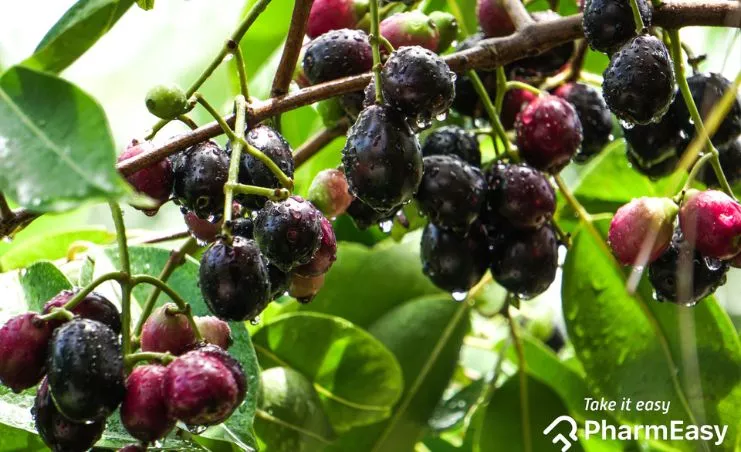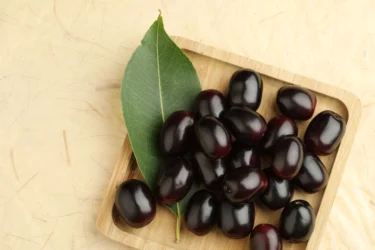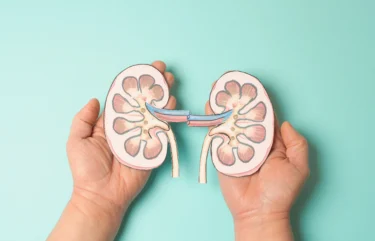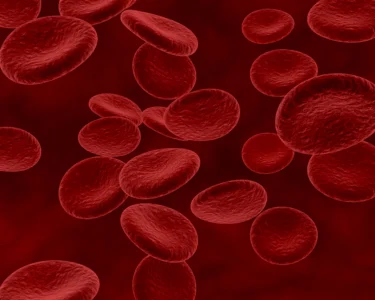Jamun (Java Plum): Uses, Benefits & Side Effects
By Dr Anuja Bodhare +2 more

Get,

to manage your symptom
Get your,


4 Cr+ families
benefitted

OTP sent to 9988776655



You’ve successfully subscribed to receive
doctor-approved tips on
Whatsapp

Get ready to feel your best.

Hi There,
Download the PharmEasy App now!!


Register to Avail the Offer
Send OTPBy continuing, you agree with our Privacy Policy and Terms and Conditions

Hi There,
Sign up on PharmEasy now!!
Trusted by 4 crore+ families

OTP sent to 9988776655



You have unlocked 25% off on medicines




Code: NU25
By Dr Anuja Bodhare +2 more
Table of Contents
Jambolan, Indian blackberry, jamun, black plum, java plum, Malabar plum, Portuguese plum, purple plum, damson plum, and Jamaica are common names for Jamun fruit in english. The tree is found throughout the Indian subcontinent and many other South Asian countries, including Burma, Bangladesh, Nepal, Pakistan, Indonesia, and Sri Lanka[6].
It is a powerhouse of nutrients and medicinal properties. This deep purple fruit is widely cherished for its unique sweet-tart flavor and numerous health benefits. Rich in vitamins, minerals, and antioxidants, Jamun has been used in Ayurvedic and traditional medicine for centuries to help manage diabetes, improve digestion, and boost immunity.

Did you know?
Anthocyanins, ellagic acid, glucoside, isoquercetin, kaemferol, and myrecetin are among the compounds found in jambolan. The alkaloid jambosine and the glycoside antimellin or jambolin are said to be present in the seeds[1].
The nutritional content found per 100 g of edible jamun fruit is[2]:
Various parts of the Jamun plant are known for different medicinal benefits, as listed below[1].
I find it interesting that Jamun wood is known for its strength and resistance to water and termites. This means that it can withstand moisture and insect damage, making it a durable and long-lasting material.
Dr. Siddharth Gupta, B.A.M.S, M.D (Ayu)











In my experience, I have observed that consuming Jamun fruit extract may have positive effects against obesity. It appears to regulate gut microbial populations, leading to improvements in weight management, insulin sensitivity
Dr. Rajeev Singh, BAMS
Also Read: Papaya Leaves and Seeds to Treat Fever and Other Ailments
Consult an ayurveda doctor and understand the correct dose and form of jamun (Java plum fruit) that can help improve your health.
The following parts of jamun can be used for medicinal benefits.
Also Read: Low Glycemic Index Fruits for Diabetic People
As reported in the literature, flatulence, delayed digestion, laryngitis, inflammation in the lungs, and emphysema are all possible side effects of Jamun fruit. This may vary from person to person depending on the dosage and duration of the product consumed.
Jamun (Java plum) has been used for its medicinal properties in Ayurveda. Different parts of this tree are used for different ailments. It is best to consult an ayurveda doctor and understand the form, dosage and duration of jamun extracts that can be helpful based on your health condition. People with ongoing medicines and conditions like diabetes, liver disease, etc, should speak to their doctor before trying any ayurvedic or herbal remedy.
Also Read: Lychee: Uses, Benefits, Side Effects and More By Dr. Rajeev Singh
Anthocyanins, ellagic acid, glucoside, isoquercetin, kaemferol, and myrecetin are among the compounds found in jambolana[1].
Yes, it is good for the liver. E. jambolana showed liver protective activity in rats by lowering the liver serum enzyme levels that were high and improving the production of protein and albumin by repairing liver cells[3].
Jamun is known as Black Plum, Java Plum, or Indian Blackberry in English. Other names like Jambolan, Malabar plum, Portuguese plum, purple plum, etc. are common names of jamun[1].
Yes, jamun fruit is good for diabetes. The antidiabetic activity of E. jambolana seed powder was observed as increased body weight and improvement in peak blood glucose levels in rat study[3].
Jamun can be good for dogs in small quantities. It is rich in antioxidants and vitamins, but excessive consumption can cause digestive issues, so it’s best to consult with a veterinarian before adding it to your dog’s diet.
Jamun fruit has a unique flavor that is typically described as sweet and tangy with a slightly astringent aftertaste. Its taste can vary depending on the ripeness, but it generally combines elements of sweetness and tartness, making it distinctive among fruits.
No, jamun fruit does not cause cold. Cold viruses are typically responsible for causing colds, not fruits. Jamun is rich in vitamin C and antioxidants, which can support immune health and may help prevent colds, but it does not directly cause them.
There is no direct evidence suggesting that jamun causes acne. However, individual reactions to foods vary, and consuming excessive amounts of sugary fruits like jamun could potentially contribute to acne in some people prone to breakouts. As part of a balanced diet, moderate consumption of jamun is unlikely to cause acne for most individuals.
Jamun can cause gas or bloating in some individuals, particularly if consumed in large quantities or if they have a sensitive digestive system. Its high fiber content may stimulate bowel movements and gas production. Adjusting portion sizes and observing personal tolerance can help mitigate these effects.
Blueberry and jamun (Indian blackberry) are not the same fruit. They differ in appearance, taste, and nutritional content. Blueberries are smaller with a sweet flavor, while jamun is larger, purple-black, and has a unique tangy-sweet taste. Both are rich in antioxidants but come from different plant species.
Yes, consuming jamun can sometimes cause black stool due to its natural pigments and high iron content. This discoloration is typically harmless and temporary but consulting a doctor if concerned is advisable, especially if accompanied by other symptoms.
Jamun is generally considered beneficial for kidney health due to its diuretic properties, which may help promote urine production and support kidney function. However, individuals with kidney disease should consult a healthcare provider to determine if jamun is suitable for their specific condition and dietary needs.
Yes, jamun can be beneficial for acidity. It has a natural alkaline effect that can help neutralize acid in the stomach, providing relief from acidity and heartburn. However, individual responses to foods can vary, so it’s advisable to consume them in moderation and observe personal tolerance levels.
Yes, jamun is high in potassium. This mineral helps regulate blood pressure, supports heart health, and balances electrolytes in the body.
Yes, jamun is good for the stomach. It aids digestion, relieves constipation, and helps treat gastric disorders due to its high fiber content and natural astringent properties.
Disclaimer: The information provided here is for educational/awareness purposes only and is not intended to be a substitute for medical treatment by a healthcare professional and should not be relied upon to diagnose or treat any medical condition. The reader should consult a registered medical practitioner to determine the appropriateness of the information and before consuming any medication. PharmEasy does not provide any guarantee or warranty (express or implied) regarding the accuracy, adequacy, completeness, legality, reliability or usefulness of the information; and disclaims any liability arising thereof.
Comments

Leave your comment...
You may also like
Comments